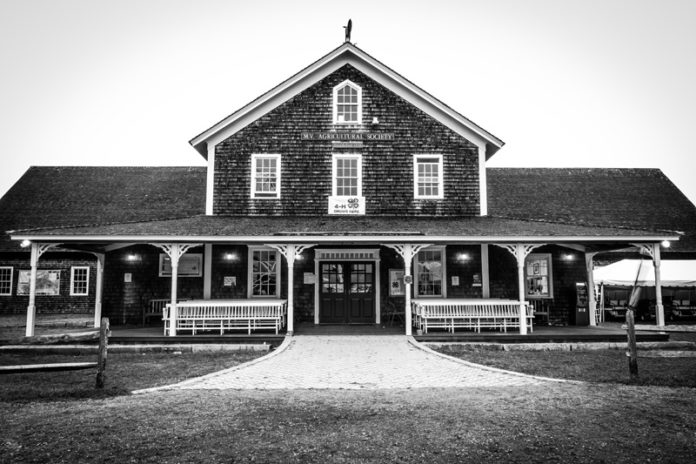EV: The Ag Fair is one of the most iconic and anticipated events on Martha’s Vineyard, and this year marks the 160th fair. But the fair is not the only event that defines the Martha’s Vineyard Agricultural Society. What exactly is the Ag Society, and what does it do?
LL: The Martha’s Vineyard Agricultural Society was started in 1858 by Henry L. Whiting and the Hon. Leavitt Thaxter. They were concerned about the Island’s isolation from the agricultural and industrial developments that were occurring on the mainland. Their solution was to organize a society where the community could learn from one another, sharing their own innovations, successes, and failures. The first fair, held in October 1858, was “a grand display of the cattle, fruit, vegetables, flowers, pictures, and fancy articles,” according to a November 1858 Vineyard Gazette article.
I first attended the fair in the summer of 2000, and will never forget my amazement. The carnival side was fun, but I found the most joy on the other side of the fairgrounds — the Exhibit Hall, Fiber Tent, Horse Rings, and the Animal Barns. I felt like I was stepping back in time (perhaps to 1858), but it didn’t take long to realize that these traditions, crafts, and trades were very much alive and celebrated on the Island. I’ve come to realize that one of the best things about the fair is that it is the greatest advertisement for the bounty of Martha’s Vineyard and everything that the Ag Society represents!
Twenty-two years later, I find myself leading the organization. Until about five years ago, the Ag Society was run solely by volunteers. Hiring staff, in addition to our beloved volunteers, has given us increased capacity to provide more services to farmers and education to our community. Just as the farming landscape on Martha’s Vineyard has changed, the agricultural world is evolving, and the effects of climate change are becoming more pressing. We once again find it necessary to collaborate and embrace new innovations.
In 2019, with the help of the Cape Cod Community Extension, we were able to bring the 4-H program back to the Island for the first time in 40 years. The genesis of 4-H was more than 100 years ago, when researchers realized that adults in farming were not open to learning new agricultural practices. However, young people were interested, and by establishing rural youth programs, they were able to introduce new technologies and developments into established farming communities. The hands-on and practical experience of 4-H provides our youth with the foundation for experimentation, problem-solving, and lifelong learning. While COVID has slowed its growth, we are excited to reinvigorate the program this fall. If you are interested in leading a group, please reach out to us!
We are grateful to be the recipient of a private grant, which is allowing us to provide soil health analysis for interested farmers. We are working with a local soil scientist who is meeting with farmers on their properties to talk about their individual goals. Once the ground has thawed, she will test multiple soil samples from each farm, and provide tailored recommendations for improving the overall condition of the land.
Another service we are excited to offer to our commercial and backyard farmers is that of the mobile poultry processing unit (MPPU). The unit is brought to a different farm each week, starting in late spring, to process chickens and turkeys through late fall, thus minimizing the cost and stress on the birds.
One of the collaborations we have been most excited about is our reunion with the West Tisbury Farmers Market. Begun in 1934 by Island farmers in response to the Great Depression, it was revived in 1974 at our old home at the Grange. The importance of locally grown food has only been amplified by lockdowns, supply chain shortages, and the past two years living with this virus. We are so thankful that we were able to provide the 40-plus farmers with a pandemic-safe location in which they could hold their market.
We are constantly holding classes and lectures to educate and inspire, not just farmers but our community. We have access to a wealth of knowledge, and are working to be the go-to resource regarding agricultural issues. So the next time you are at the fair, maybe walk a little slower through the Hall, stop and feel the wool being spun in the Fiber Tent, say hello to the tall man with the two beautiful Clydesdales, or the woman in the baseball hat effortlessly overseeing a barn full of animals. This is our community and our livelihood. And we couldn’t be prouder.


